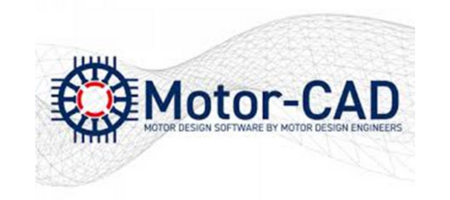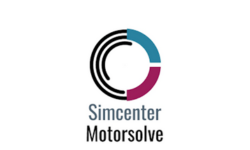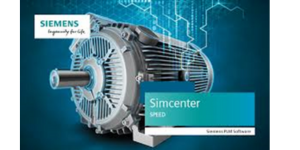

Motor Design and Manufacturing
At Fernhill Technologies, we excel in the design and manufacturing of BLDC motors, PMSM motors, serving a variety of sectors including:
- Medical
- Defense
- Industrial
- Automotive
- Commercial
Key Features of Our BLDC Motors:
- High Efficiency
- Precise Control
- Long-Term Reliability
Our motors are engineered to perform optimally in demanding environments. We utilize:
- Advanced simulation tools
- Stringent testing protocols
to ensure optimal performance across varied conditions. With a focus on quality and customization, our solutions are tailored to meet the specific needs of each industry, delivering superior performance and energy efficiency.

Design and development process
Project Requirements:
Define the technical specifications and performance goals, including design constraints and target specifications. Review this foundational step ensures that the design aligns with the client's expectations.

Concept Design:
Develop initial design concepts, including choosing rotor topology and preliminary geometry. This phase involves brainstorming and exploring various design options.

Simulation & Analysis:
Perform electromagnetic, thermal, and mechanical simulations to predict performance. Tools like FEA (Finite Element Analysis) are used to refine the design, ensuring it meets requirements.

Prototype Development:
Create a working prototype based on the optimized design. This stage involves manufacturing components, assembling the motor, and integrating necessary systems for a functional prototype.

Testing & Validation:
Conduct comprehensive testing to validate performance against the initial requirements. This includes efficiency, torque, speed, thermal, and other relevant tests. Ensure environmental and regulatory compliance to finalize design verification.

Design Optimization & Production:
Refine the motor design based on test results, focusing on optimizing efficiency and performance. Prepare for large-scale production, ensuring quality control throughout the manufacturing process.
MOTOR TYPES
At Fernhill Technologies, we specialize in designing various types of advanced electric motors tailored for diverse applications:
- BLDC Motors (Outer and Inner Rotor): These motors offer high efficiency and power density, making them ideal for applications requiring precise speed control and reduced maintenance.
- PMSM Motors (Outer and Inner Rotor): Known for their high torque and smooth operation, PMSM motors are suited for both high-performance and energy-efficient applications.
- SynRM Motors: SynRM motors provide high efficiency without the need for rare earth magnets, offering a cost-effective solution for industrial use.
- SRM Motors: SRM motors are robust and reliable, suitable for harsh environments and demanding industrial applications due to their simple and rugged construction.
These motor types cater to a wide range of sectors, including medical, defense, industrial, automotive, and commercial markets, where precise motor performance is critical.
TOOLS
DESIGN >> SIMULATION>> TESTING
At Fernhill Technologies, we leverage cutting-edge software tools for the design, simulation, and testing of motors to ensure precise and efficient development processes. Our standard tools include Ansys MotorCAD, Ansys 2D, Simcenter MotorSolve, Simcenter Speed, and Altair Flux, each offering specialized capabilities for motor design. For projects requiring specific licensed software, we have established partnerships with third-party vendors, ensuring access to the right tools tailored to each project’s needs, thereby optimizing our design workflow and delivering high-quality solutions.
Ansys MotorCAD:
A leading tool for fast, accurate analysis of electric motor designs, allowing for detailed multi-physics simulations of thermal, electromagnetic, and mechanical behaviors.
Ansys 2D:
Focuses on 2D finite element analysis, enabling detailed electromagnetic simulations that help refine the motor's performance characteristics with high precision.
Simcenter MotorSolve:
Provides comprehensive tools for the design and analysis of electric motors, including electromagnetic and thermal simulations for performance optimization.
Simcenter Speed:
A specialized software for rapid preliminary design and performance evaluation of electric motors, supporting quick iterations during the concept phase.
Altair Flux:
Known for its powerful electromagnetic and thermal simulation capabilities, this tool assists in optimizing motor designs for efficiency and reliability across various operating conditions.





Analysis Handled
At Fernhill Technologies, we offer comprehensive motor analysis with third-party support to ensure optimal performance and reliability. Our analysis capabilities include:
- Torque-Speed Analysis: Evaluating the torque and speed characteristics for various load conditions.
- Flux Density: Measuring magnetic flux distribution within the motor.
- Temperature Rise: Monitoring heat generation and dissipation to prevent overheating.
- Back Electromotive Force (Bemf): Analyzing the induced voltage when the motor operates.
- Cogging Torque: Minimizing resistance that causes vibration and noise.
- Torque Ripple: Reducing variations in torque output.
- Flux Weakening: Extending operational speed range beyond base speed.
- Slot-Pole Combination Selection: Optimizing motor design for efficiency.
- SPM/IPM Topology Selection: Choosing between Surface Permanent Magnet (SPM) and Interior Permanent Magnet (IPM) configurations for performance.
- Duty Cycle Analysis: Assessing operational cycles for thermal and mechanical durability.
Standards Handled
At Fernhill Technologies, we adhere to rigorous standards to ensure the quality, reliability, and safety of our motor designs across various applications. Our adherence includes:
- IEC 60034: International standards for rotating electrical machines, covering aspects like performance and efficiency.
- RTCA DO-160F: Environmental conditions and test procedures for airborne equipment, ensuring compliance with aviation standards.
- MIL-STD 810C/F: Military standards for environmental engineering considerations, covering extreme conditions such as high/low temperature, shock, vibration, humidity, and explosive atmospheres.
- Temperature Standards (MIL-STD 810C, 501.1 to 504.1): Tests include high, low, and temperature shock for ensuring thermal resilience.
- Humidity (810C, 507.1), Salt Fog (810C, 509.1), and Dust (810C, 510.1): Tests to ensure durability under corrosive and particulate conditions.
- Explosive Atmosphere (MIL-STD 810C, 511.1): Testing for safe operation in volatile environments.
- Vibration and Shock (MIL-STD-810F): Evaluations for structural integrity under mechanical stresses including specific shock profiles (15 g, 11 ms and 30 g, 10.2 ms Saw Tooth).
